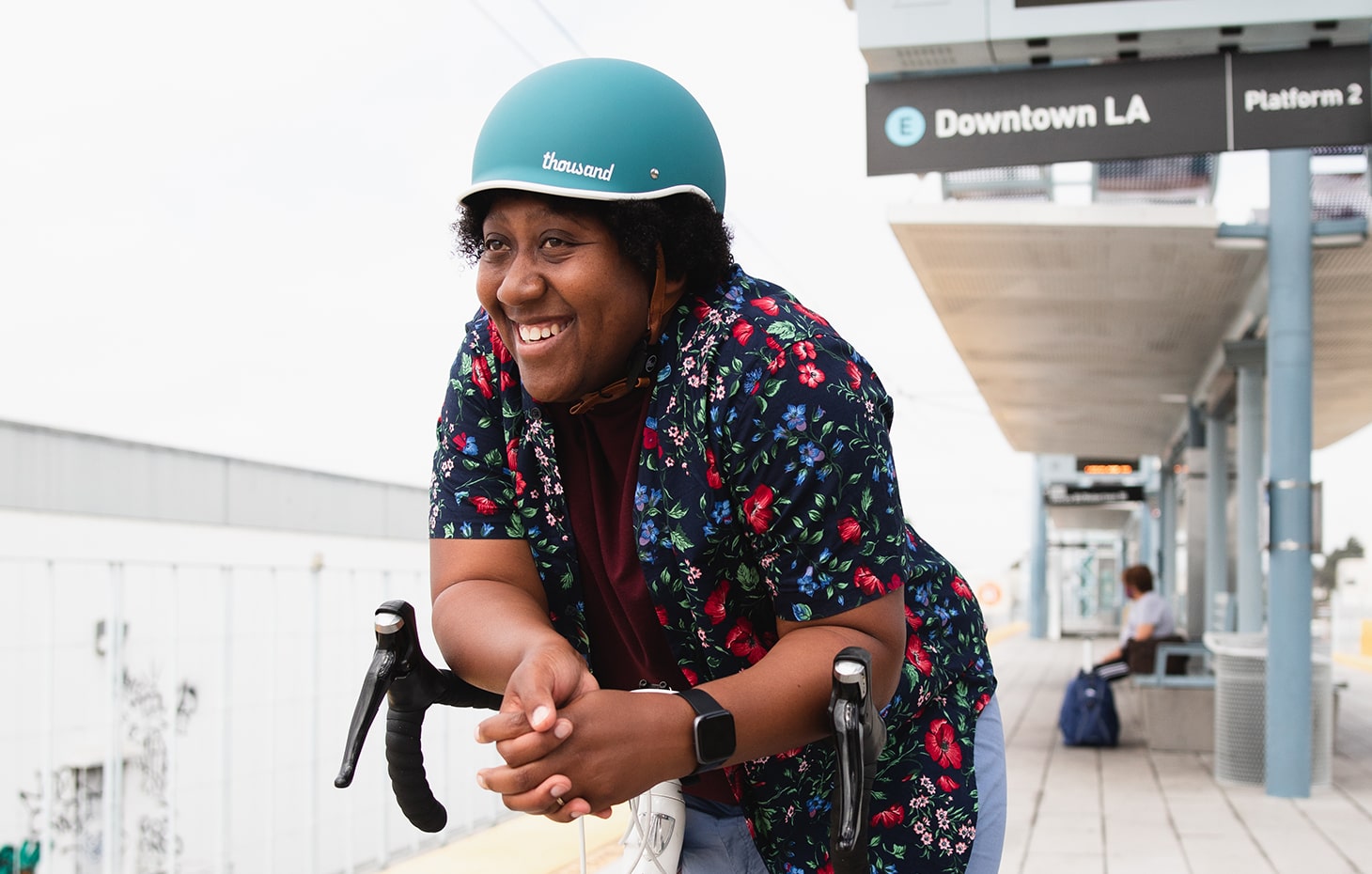
The next time you go out for a ride, take a look around you and think about the way your city's infrastructure was made. Where are bike lanes, and when and how do they end? Do the bus stops nearby have benches and shade? Are there many green spaces around you?
When it comes to urban planning, many of us think of city infrastructure as things that just... happen. That the bike lane that disappears from the middle of the street or the bus stop that's built without any shade are just how it is and how our cities were built. But Tamika Butler (she/her/they/them) wants to challenge that way of thinking.

A national expert, speaker, and consultant on issues pertaining to our built environment and anti-racism, Tamika wants to build better cities by increasing diversity, equity, and inclusion in urban planning. With a background in law, community organizing, and non-profit leadership, Tamika is now pursuing a PhD in Urban Planning at UCLA to bring her vision of more diverse, more equitable cities to life.
Learn more about Tamika and how she sees the future of urban planning below.

Thousand: What do you see as the intersection of urban planning and diversity, equity, and inclusion? What is the relationship between these two issues?
T: What would you like to see more of in LA neighborhoods to increase equity and access to public spaces?
TB: I would like to see the diversity of the city better reflected in our decision-makers and communities listened to more so they have an ability to self-determine what they want to see in their neighborhoods.

T: What unique perspective do you bring to the future of urban planning?
TB: As a genderqueer Black woman, I'm happy to bring my life experiences to this space. It's exciting to me that there were giants whose shoulders I stand on and more people like me making our way into this field. In some ways, my perspective is only unique because urban planning has been so dominated by straight, cisgendered, able bodied white men with access to education and resources.
T: If you could give our community one call to action, what would it be?
TB: Stop seeking out conversations and spaces that feel safe when it comes to tackling issues like inequity, racism, or white supremacy, instead be brave.

Here are her tips on how to get involved and make impactful change in your own city:

2. Explore local resources: Most communities have a local bicycle coalition, transit advocacy, or walking advocacy group. Figure out where your nearest one is and become a member. Join their mailing list and learn about what issues are happening in your community.
3. Get engaged: Stop thinking of urban planning and our built environment as things that just happen. Start thinking about the fact that space and place impact every aspect of our lives and if you are not part of thinking about these things, someone else is making decisions about how you can inhabit places and spaces.
Read more from Tamika at Bicycling.com and Medium.

